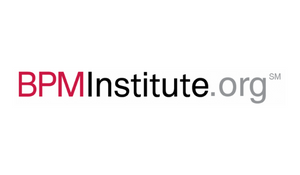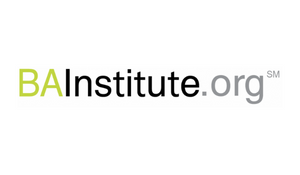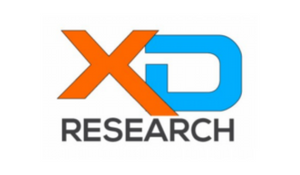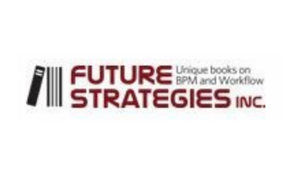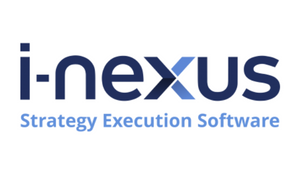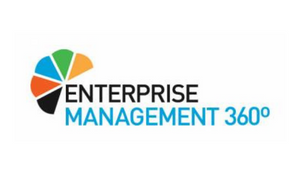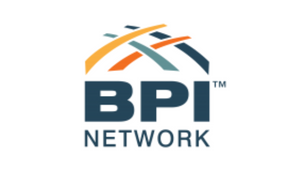



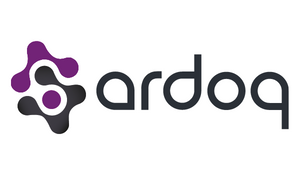
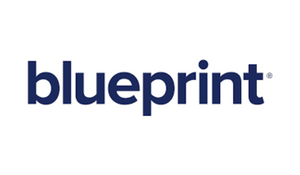

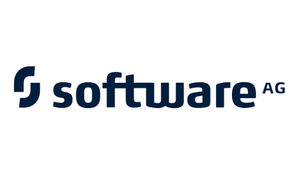


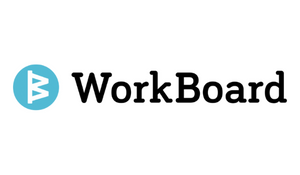
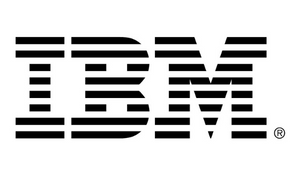






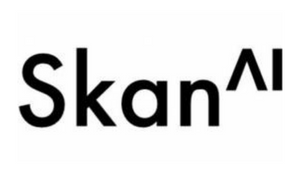










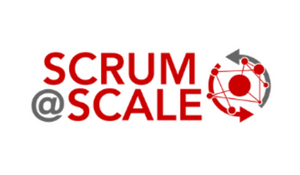

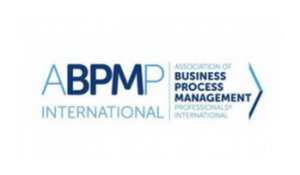
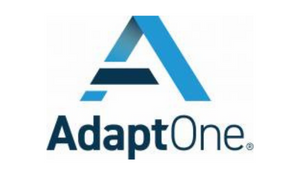
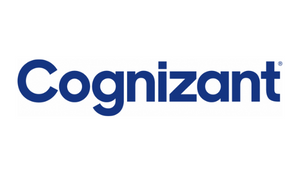
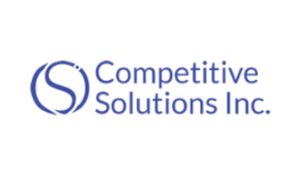
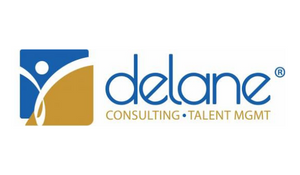

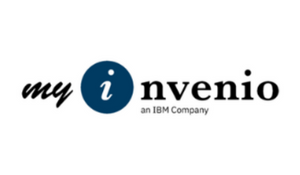

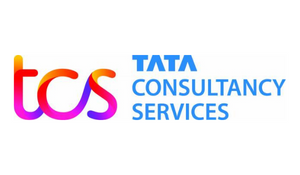
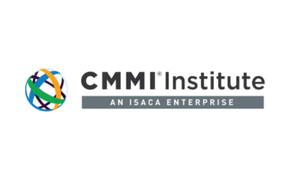
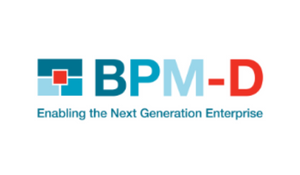

Courtesy of University of Waterloo's Peter Carr, below is a transcript of his speaking session on 'Improving the Probability of Transformation Success Through Collaboration' to Build a Thriving Enterprise that took place at iBPM Live Virtual Conference.


Session Information:
Improving the Probability of Transformation Success Through Collaboration
For most organisations today survival depends on digital transformation and this need has been accelerated by the pandemic. Consumers have moved online, automation technologies are advancing rapidly and tech-based companies are threatening many market areas.
Most digital transformation projects fail and many of those that succeed struggle to move beyond the pilot stage. Radical, comprehensive, strategic change requires the commitment and participation of everyone, in organisations that have little experience of doing that. Business leaders need basic transformation processes to overcome this challenge.
This session outlines a simple framework for digital transformation success, using basic tools that facilitate organisational collaboration to develop a transformational vision, create a roadmap for its implementation and manage its execution. The session will provide an introduction to:
Session Transcript:
Canada, with doctor Peter, Peter Car from the University of Waterloo. So, doctor Peter, what a pleasure to have with us. Peter Carr works on overcoming the challenges of these transformation in organizations and society. He has worked with organizations of all types of successful technology, technological change, focusing on integrating technical systems and human change. And he believes that enabling existing organizations to adapt to the fourth industrial Revolution is essential for all countries, economic and social welfare.
Is always interests in talking with organizations about their own change activities, to provide advice and inform his teaching and research work at Canada's University of Waterloo.
Peter, what a pleasure to have you with us. Thank you so much for taking the time to share your expertise of our global audience today.
You're welcome, Jose, and I'm looking forward to doing that.
OK, so, my spring should be being shared with all of you now.
And, first of all, I hope that wherever you are in the world and watching this presentation, that you are well and safe and that that will continue to be the case.
I'm going to talk about improving the probability of transformation success.
There are a number of different elements of digital transformation that I'm going to refer to.
But I think it's well known that digital transformation is more important today than it probably ever has been. Covert has increased the extent of digital transformation, the use of technology in the world.
Fun to talk about making that more successful inside organizations and religious.
Provide your thing with a way of looking at that, that, that I hope, will be helpful.
And, what you do to make your organization more likely to be successful with its use of technology?
So, I'm just going to move to the next slide.
If It's going to let me do that, there we go.
OK, So the presentation I'm making now is based on the content of a blog, which you can see on your screen now.
I have written for the course that I teach in this area.
I teach a number of courses at the University, Digital transformation, and the websites that I create are designed to support that, and the work that I do with companies. So if you want to know more about the things I'm talking about today, at this blog is a good place to start.
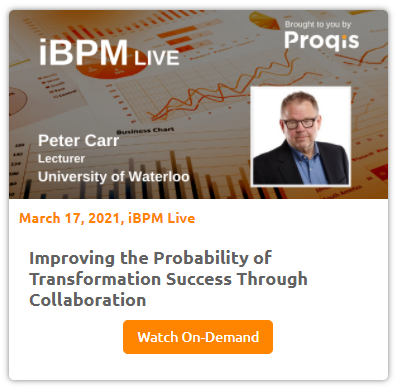 So there are five things that I'd like to cover, in the short time that we have available, and I apologize for being a little bit late today, that was, simply restarting my machine taking longer than I expected. It works. But there are five things that I want to talk about. First. Of all, the fourth, Industrial Revolution is a revolution.
So there are five things that I'd like to cover, in the short time that we have available, and I apologize for being a little bit late today, that was, simply restarting my machine taking longer than I expected. It works. But there are five things that I want to talk about. First. Of all, the fourth, Industrial Revolution is a revolution.
And I think, you know, some people understand that, probably, not everyone does the extent to which technology is now impacting every area of people's lives. There are very few areas that we can think of.
I sat and I find it very difficult to think of areas that are not impacted by technology today. And I just want to remind you of the scale of what's taking place.
So, because it is a revolution, it's not really optional, And I wanted to talk a little bit about how come prepared companies are, far it, and then what we might need to do about it.
And that's going to take me to my fourth point, which is that we should think about digital transformation as being socio technical. We understand it, to an extent.
That the technological change that we're trying to bring about, is something that requires human change, that requires that people in the organization will change the things that they're going to be doing in their jobs.
Many of them, many will require new skills, new attitudes. Perhaps they'll need to be a new culture.
But we don't really take what we would call a socio technical view, which is basically putting together the technical and social are human change that we're seeking to make.
And the relationship between those two is, is, I think, very important, and I'll explain why, and I'll also explain the challenges that exist in making this work effectively.
So we know we're not very good at digital transformation. Most organizations fail in the projects that they use to attempt to achieve it.
And I think part of the reason for that, I think, is that we don't sufficiently consider the change that we're making to be socio technical. I'll explain what I mean by that.
And then finally, I'm gonna give a few tips around improving the probability of your success, not a lot of tips.
The presentation itself is more focused on understanding what is going on and what digital transformation is.
Once we understand that, I think that enables us to be hopefully more successful.
OK, so the extent of the change, which is happening, I just have a few slides here, which illustrate the extent of the revolution, the, this is the automotive industry.
Some headlines from the past few months, we know electric cars are going to be much bigger in the future.
And, the traditional automotive companies have struggled first file with digital transformation, and the extent of the change that it might mean for them.
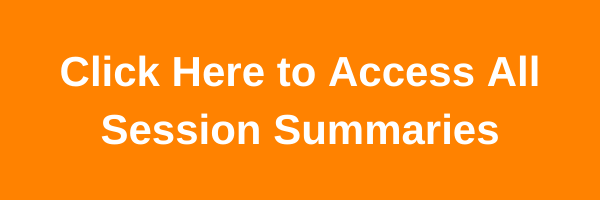 Nice headline timeline, that we're seeing new headlines on the automotive industry every day, but that's a very simple, easy to watch.
Nice headline timeline, that we're seeing new headlines on the automotive industry every day, but that's a very simple, easy to watch.
Example of large scale transformation retail has been transformed, particularly during ..., that was already in the process of transformation.
The picture you can see here, back of this slide, is of an Amazon warehouse.
Amazon have grown and grow during the, during the pandemic.
And there are lots of issues there for the people who work in retail, for the nature of the cities that we're going to live in.
But large-scale change, simply arising from the transformation that we're seeing in retail, financial services have not really been hit much.
So, far, as the banking system has stayed largely, the way, it has been for many, many years.
But, this is right for transformation, for apps, back to some degree, by the regulation, which exists in that sector at the moment. But, the impact of bitcoin and cryptocurrencies, what that might mean?
The creation of digital currencies by companies, Google, perhaps moving into banking, All meaning that the financial sector, not too far from today, is going to look very, very different, from the way as no health services had to leave them out with ....
Being very present, obviously, moment. But this has meant that technology and its potential, as far as the healthcare sector, is concerned, that has been much more visible, and we can see examples of that inside the slide.
Then, where I work education, we don't yet know what the future farm will be, that universities are going to take post coven.
That's an active discussion inside the university, that I work for moment.
And, but also, in over broadly, at K to 12 education, to what extent will technology play a role there?
The rapid movement to online learning for children has been very disruptive for families, and has often been criticized, But same time, there will be elements of that, which will remain. And we also know that that technology has a large role to play as far as education is concerned.
Now, these are areas that many of you may work in, that I've covered so far, And there are, of course, many others. The impact of technology on our democratic systems around the world is something which has gained a lot of attention. Particularly with your election in the US.
For those of you who are in the US.
But, of course, those same forces that were influential there, and which are causing concern there, also exist all over the world.
And are really questioning the essence of our democratic system.
And really causing a debate to take place at the moment, over the extent to which democratic systems arnaud appropriate.
In the more rapidly changing technology enabled world that we live in.
Today, the risks are very real Question over the future of democracy in the world, that did not exist a short time ago, and which was brought about by technological advance, and our increased use of information technology.
There are many other areas I can cover. This is something that I look at in the work that I do at the University of Waterloo. Which brings me to my second blog.
This law is focused on the impact of technology in society.
It covers a large number of areas that you may be able to see on your screen.
That interestingly, this week, I'm talking to a specialist on the impact of technology and modern warfare that's gained a lot of attention.
Certainly, cyber conflicts pass over the past week or two, and, indeed, today, it's got to be a particular focus.
and the extent to which it is now becoming a central part of what modern militaries do A few years ago, perhaps 2 or 3 we would not have considered that cyber warfare would be at the center of what militaries would think Dubai and resource as part of their strategy today.
And that is the discussion that is very active in the media on this day and has been for for a little while now.
So, a number of areas in which technology is having an impact, just one, to first establish that the impact of technology on the world is revolutionary and now unavoidable.
And something that every organization, really, if there are not already, needs to take extremely seriously and know what their response to it is going to be.
So, it's not optional.
And here are some quotes of some statistics that have been gathered by a couple of the major consultants.
McKinsey, first, 92% of company leaders, believe their business know the law is not economically viable through digitization, that is a shocking statistic.
It's a statistic that perhaps doesn't shock as much as it should.
That says, 92% of people running companies today believe that the business model is not viable. We can take out the part about digitization Because it's going to happen, anyway.
92% think that their business model, today needs to be significantly changed.
Only 10% of a strategy for doing that saved the life.
That is a big big gap, 82% that 65% believe that industry, four, or the fourth industrial revolution or we may call it digital transformation, it's more valuable than they did before the pandemic, so perhaps so little.
glimmer of hope that the cov at 19 and the pandemic have raised the level of awareness of the impact, that digital transformation.
We'll have one on the business sector and organizations, more general.
We know that there are a number of different elements in transformation for organizations. This is a list of the, of the things that, the ways that digital transformation may impact organizations. It's one that many of you may be familiar with. It covers a wide range.
So when we talk about transformation, we aren't necessarily talking about revolutionary change in all organizations, but we are mean we are talking about technology oriented change in nearly all organizations of one of these types, ranging from simply the way that you connect with customers.
three to whole new business ecosystems: the the advent of the electric car whelming. Very different ecosystems in the automotive industry.
Many suppliers will disappear, that, made gas powered engines, and elements related to gas inside cars. Where's whole new industries and new suppliers are growing around the electric elements?
And, and also, the technology enabled elements that will exist in cars in the future, and a range of other areas in which technology well empath the way that organizations operate.
Cool.
Apologies. I'll just move on to the next slide. We're not very good at it.
Most people, I think, are aware that most organizations struggle with digital transformation.
This, this is a collection of statistics, which I think make this really beyond doubt, first of all, 87% believe they'll be disrupted, 27% are saying it's a matter of survival.
I think that's probably for more than that, 80% plan to accelerate their digital transformation with plans, less than 30% of them succeed.
So organizations are under significant threat.
From the advance of technology or a threat from doing nothing.
They know they've got to do something.
Most of them believe they should do something, understand that they need to, and yet, only a third of them are successful.
And there are a number of other statistics here which illustrate this.
As well, This is a serious situation, in the sense that, if the and the there is an understanding that this change is necessary, and it's only likely to be successful in a third of organizations.
Does this mean that we're going to see a significant disappearance of organizations which are not successful?
Not necessarily the case.
It may be that of those 70% who do not succeed, some will be able to survive in some way, but it is likely that a significant proportion of that 70% will disappear.
This is something of course that is undesirable, have a very bad impact on, on the company and shareholders, on the people who work for the company and the communities in which they live.
They may be replaced by bi by new organizations, by technology based startups by, you know, online providers and things like that.
But the impact that those new companies have may mean that many communities are left behind those up their operations, maybe in other places, they may be in other countries.
And the overall economic impact as far as individual economies is concerned is likely to at least be unbalanced.
And what will mean that, the extent of the disruption that is caused by the fourth, Industrial Revolution, is greater, than if we can help existing, as many existing companies as possible, to change effectively.
So we've been looked at that at the University of Waterloo.
We've considered why organizations struggle with their change.
There is a list of the areas that, that, that we identified as being important with this.
We conducted a study years, or so ago, of reports that had been produced, work that have been done to understand organizations, struggles with digital transformation, and there is, you can see here were the ones that we identified.
Divided into four sections: people and culture, technology, and process, integration, innovation, and privacy, security, and regulatory requirements.
These were all reasons the organization struggled with digital transformation.
I want to use the time that I've got left to influence the direction that our response to this may have.
I'm going to take what's called a socio technical systems approach, which is combining the approaches that we take to the technology.
And what we do with the technology, with how do we manage the people, and how we organize the people?
And our systems, how we pull all of this together, they have principles on which we, we, we organize our business and the challenges that digital transformation poses art created.
I think, by a failure to understand the relationship between these factors and the complexity in ensuring that what we do in each of these areas is effectively combined to enable our transformation to be successful.
So, two, summarize the challenges that exist in this area.
First of all, in terms of the system, principles and framework that we use for our transformation, here we have a choice. There are a number of ways in which we can argonaut weekend.
Structure and, and manage our organization.
four of those are represented on the slide, first, that is, scientific management.
The traditional approach to managing organizations, our understanding of that started in manufacturing, but it extends into other other sectors of the economy by a traditional bureaucratic approach to organizing our company.
Secondly, we have Leen originating in Japan and influencing all types of organizations today.
Agile or flexible and agile approach is often advocated as part of digital transformation, that part of our objective with our application of technology should be achieving agility. That is a worthy principle and one which we may adopt.
And then, finally, virtual, to what extent are we focused on our organization, becoming more virtual, having, with people working on providing services in places around the world.
These are all different ways to organize our company, and we'll have different implications for how we use technology.
But before we move on with our selection of technology, we need to consider that the way that we're going to use it, and the principles that we use for doing that will be based on the system that we use to organize our company.
Secondly, we have the options for how we will manage our people.
I've depicted three of these possible options on this slide, and we have a traditional or scientific management approach that exists today in many companies, and which whose characteristics are described on this slide.
.png?width=742&name=Screenshot%20(4).png) Traditionally, we would divide work, skill, and work.
Traditionally, we would divide work, skill, and work.
Managers would have a fairly negative view of employees, and there would be low engagement through human relations, where we take a more positive view to socio technical approach to the people say, of managing people in an organization. So human relations, where we focus more on teamwork and motivation at just socio technical, where we're focused more on self managing teams. Organization of our technology Around the, the organization that we have of people.
So a number of People Options, which needs to be combined with our Systems Options, and for each of the systems that I've described, we can apply each of these at people options.
Today, this slide describes some of the common characteristics of workplaces today.
But basically, what this is intended to illustrate is that in many organizations, that more motivated environment that we require to be successful with digital transformation, it does not exist.
And is that alone is likely to mean what our transformation is unlikely to be successful.
In 85% of employees, according to a recent Gallup poll, say that their employees are not engaged in the organization, which suggests that the relationship does not exist.
That would enable a participative form of digital transformation to be successful.
Technology options, When we choose two, are considering got the adoption of technology inside an organization, there are many areas, and many ways in which that technology could be applied, the different transformations that I listed earlier also draw attention to these options.
But basically, we have these choices.
And the choices that we make about the, the way that we apply technology are the things we want to achieve for us, will be integrated with what we do with people, and also the different systems that we have that we might use inside the organization, Both before and after the transformation.
So what does this highlighting?
It's the transformation itself.
It's something which is requires very careful integration of change in a wide range of aspects of the organization.
And if we're not successful with designing that integration and consistently applying it across the organization, we're unlikely to be successful.
This slide shows you part of the work that we've done to understand the, the range of technologies that are available far, digital transformation, There are many more than are listed here. These are just some popular ones.
But what you can see, this is along the top of the chart, the different technology applications.
And on the left-hand side of the chart, the reports that we looked at, and this indicates the application, the range of applications, and that are possible as part of a transformation activity.
So, in order to be successful in digital transformation, I'll try and finish the two minutes that are left to me.
In order to be successful, we need to combine all of these element, so we need to very carefully manage that combination in the design of what we're going to do, and then, in the implementation of the digital transformation itself.
And so, it's not surprising that organizations are challenged in their successful transformation itself.
And I just wanted to point to, or just say a few words, OK, some of the aspects of their transformation activity, which I think will enable them to be more successful. The very simple elements that I want to refer to.
And I'll just quickly provide a few tips around these.
The first is the vision, which, uh, given this understanding of what transformation success requires, the vision is very, very important.
And, I'll just say a little bit about that.
And then, following from the Vision, the roadmap that we take, the integrated journey that we take, that requires contribution from people throughout the organization, needs to be synchronized. That doesn't mean it can't be changed, but it does need to be synchronized.
In fact, that will be very important that you're able to change it when required and reasonably easily, but, at the same time, it does need to be clearly consciously integrated.
The implementation process is part of that.
and the lead us to that is required to enable all of this to happen, also needs to be good.
But, as far as the vision of those, having a very clear socio technical vision, the digital transformation is essential to transformation success.
It needs to be collaborative and collaboration in the title, in the original title of this presentation.
But the vision that we create, often when we're engaged in change in organizations, is something that is created, that had that at the beginning of the process, and has very little understanding outside the senior management team.
When we talk about creating a vision for digital transformation, it should be something that everyone in the organization understands, that very careful activity is undertaken.
 To achieve that understanding, we need to go out and talk to people and communicate, and involve effectively.
To achieve that understanding, we need to go out and talk to people and communicate, and involve effectively.
The transformation roadmap, again, needs to be one that is socio technical, that involves all of the elements I've described, and conscious consideration of all of those elements. It doesn't need to be agile.
So one of the challenges that we face, and in creating, and then implementing a transformation roadmap, that it is that we're trying to manage a complex project, a complex implementation, But it does still need to be able to respond to changes that may happen as that proceeds, which may cause us to change the roadmap.
So, we need to be agile, and how we do that, that requires very careful design, and is something that your attention needs to be given to us, through those two.
Implementation needs to very clearly be led by the CEO.
There needs to be socio technical metrics, which I particularly want to emphasize on this, and it needs to be very participated.
Finally, transformation leadership.
This is a fundamental change from the past.
Really, all I want to say here, most organizations have never undertaken transformational change.
Their management structure.
Their management culture is not suited to that, And bap bap achieving that level of capability.
It's going to be very important, in enabling a change, to be successful.
So, those are the things that I want to say today. This is the blog that I showed you at the start.
It says a lot more about the things that I've talked about very quickly today.
And I'll be happy to discuss your questions with you now.
But, also, if any of you are interested in discussing what I've had to say further, please do contact me. You'll find me in LinkedIn, that's the easiest way to do that.
And I would be very interested in understanding what you're doing. That will inform our work at the University of Waterloo.
Thanks for taking the time to follow this presentation.
Thank you very much, doctor Carr for for that presentation. And we have had a number of questions that have come up here doing, doing it and the I want to align my monitor here to capture those questions.
And the very first one has to do with organizational capabilities.
So what, what, what have you found in your research and practice to be the most critical organizational capabilities to be developed when it comes to successful digital transformations?
I think the way that I would answer that shows that it's that we need a range of capabilities.
So we know that skills in a range of areas are will require change, so we need good leadership skills at the top of the organization, we need good technical skills.
Many people we know that in many organizations digital skills are very lacking, I think Gentrify one skill it would be the ability to work with others, act collaboratively across disciplines.
So if we take a socio technical approach to digital transformation, that means we need good techies. We need people who know about artificial intelligence.
Perhaps that many organizations are interested in that today But we also need sociologists and psychologists and people who perhaps we appreciate a little bit more after cov it.
So so I think if there's one big skill is the ability to work with people from a range of different disciplines and, and, and make things happen together.
Very good, very good. And then following up more on the on the personal, professional side: You talk about digital skills as an example: What's under digital skills? What are some of the more specific skills that are under this umbrella of digital skills that that professionals should be looking to develop?
Mmm hmm.
I think, again, it depends on where those professionals are coming from.
So, some of the professionals who are watching this will have a technical background, and they'll be really good technical skills, in which case, I would say to them, Go and develop your human skills and develop your understanding of systems.
I think the starting point this to say that leaders and people who will be able to most contribute to this will require skills in all these areas. Understanding of work systems. Understanding of human, working with people, and being good at working with people, but also understanding the technology. So, the advice to the people you've described.
Joza is Think about what you don't have and go after those other things it's the capability in all three areas. That's going to be important.
Farewell. Ragu Krishna and ask a couple of questions here related to kind of macroeconomic trends when it comes to digital transformation.
There, and maybe a two part question, but one is that, who do you see as the, the organization, or maybe the industries that will be, maybe it's significantly affected in a negative way, and, you know, and then the which ones are going to benefit from this digital transformation the most? You did talk about some of this in your, in your presentation already. I was wondering if you could just summarize maybe the top 2 or 3? That will be on the positive side on the negative side of digital transformation in Yorkville?
Mmm hmm.
I think that, I don't know if I would point to individual industries, I would say, within individual industries, there are some who are going to suffer and some who are going to do well, in the automotive industry, for example, of course, those that are successful with electric cars probably going to be successful.
I think rhythms that a lot of electric cars are going to be sold at the same time, those that can't make that change are the ones that are going to be less successful.
You could point to obvious areas, the ones that make the gas engines for the cars are not going to be that's successful.
The, as far as retail is concerned, perhaps people who are organized are the construction sector that is constructing the insights of stores and making stores is going to be less successful.
So, for me, the, the major economic impact is where are getting, where industries don't transition, and what's going to replace those.
So, one of the big questions as far as, uh, both, as far as the number of industries go, is, well, the existing businesses be able to survive to transition.
Are might they be replaced by a platform of some kind or at, you know, at a technology based supplier of that particular proto?
So, electric cars, let's say, we had, uh, at the, let's say, that the American automotive companies are not successful with their movement and electric cars. We know there are other things happening in that industry.
So, you know, Tesla, have moved some of their work to China, some to Texas, but they're, you know, they're moving along and perhaps slightly to be part of that successful future.
China are building a wet all electric car, one that costs a very small amount of money.
You know, perhaps Chinese electric cars will take over the world.
That would be a big disruption to that industry and would be what would happen if they weren't successful, it grew and built their industry and the American industry didn't respond.
So, so, that's where I see the economic impact.
That is which parts of the world aren't going to be successful and take over particular sectors.
Perhaps our second one because the balance of strength will change across the world.
That's the overall global economic impact.
I think from this farewell, doctor Peter, Car. Thank you so much for taking the time today to sharing your expertise and research with our global audience. So we really appreciate all the insights you have share with us.
Thank you for having me. Other than that, it was and hopefully there may be discussions with some of the people watching.
Very much so, Very much so, it's a good reminder for all of our participants as well, that the discussions can go on.
You can contact us, and certainly through our LinkedIn page, you can post comments, questions, Get contact information about our speakers, and the, Let's stay connected. And, again, thank you for for your expertise and the insights today.
Stay safe everyone, and you change the thank you for a year.
Excellent.
Moderation, That's very kind of, you, sir, thank you very much.
.png?width=742&name=Screenshot%20(4).png) Ladies and gentlemen, that's doctor Peter Carr from University of Waterloo in Canada, sharing his expertise on and research on digital transformations, Lot of very interesting perspectives that were shared there, And the data, also, on the, on a number of studies that have been done up to date.
Ladies and gentlemen, that's doctor Peter Carr from University of Waterloo in Canada, sharing his expertise on and research on digital transformations, Lot of very interesting perspectives that were shared there, And the data, also, on the, on a number of studies that have been done up to date.
Now, this is the last session of they choose, so we're going to be wrapping up here. I want to remind everyone that you can follow up and look up on LinkedIn, and the, and comment and like share asked questions related to the topics on a BPM live. Also, I want to give you a quick preview of who we are expecting tomorrow in our lineup. We're going to kick off the day with, with James ..., who is the Chief Executive Officer and real expert on .... And its evolution over the years, where he's going to kick off the first session tomorrow for us. And that's going to be followed up by the Senior director of Platform engineering at Target. He's going to talk about enabling organizations to trust their data.
And soon after that, we're going to introduce the Research Manager and System Architect for Precision Neuro Therapeutics Program at the Mayo Clinic. Scott Whittemore, is going to be with us. And Scott Whittemore is going to be looking at measurement of business processes.
Certainly with a heavy emphasis on healthcare, which is the industry where he comes from, and we're going to finalize, We're gonna go for the stars in our last session tomorrow and you do not want to miss the session with shell with Shelley Brunswick, the Chief Operating Operating Officer of the space. Foundation. Shelly's going to talk about how to leverage innovation and entrepreneurship in the Global Space Eco system, talking about vision, talking about execution and the grande's scale. We're gonna, we're gonna look at, you know, the excitement around space-x and NASA and all that much beyond that on the whole space ecosystem and how innovation and entrepreneurship is. He's being significantly accelerated in the ecosystem, So you do not want to miss that. That session, and, really, all the sessions tomorrow. I hope to see you back, And whatever you are in the world, I hope you have a great rest of your day.
Bye-bye.

-2.jpg?width=235&height=235&name=1516227957684%20(1)-2.jpg) Peter Carr,
Peter Carr,
Lecturer,
University of Waterloo.
Peter Carr supports organisations’ transformation for the Fourth Industrial Revolution. He is a lecturer in the Department of Management Sciences, in the Faculty of Engineering in Canada’s University of Waterloo, where he is focussed on implementation of innovation, entrepreneurship and digital transformation in established businesses.
Peter has a wide range of industrial experience, working with organisations in many sectors, both public and private. His PhD, from the UK’s Cranfield University, focused on the implementation of lean manufacturing. He has a Masters degree in Manufacturing Systems Engineering and a Bachelors degree in Economics. Prior to joining the University of Waterloo, Peter led the world’s first online Executive MBA programme at Athabasca University in Alberta.
Peter lives in Toronto.

View our schedule of industry leading free to attend virtual conferences. Each a premier gathering of industry thought leaders and experts sharing key solutions to current challenges.
View Schedule of EventsWelcome to BTOES Insights, the content portal for Business Transformation & Operational Excellence opinions, reports & news.
-------------------------------------------------------
Search for anything
Insights from the most progressive thought leaders delivered to your inbox.
Insights from the world's foremost thought leaders delivered to your inbox.
Being a hero is all about creating value for others. Please invite up to 5 people in your network to attend this premier virtual conference, and they will receive an invitation to attend.
If it’s easier for you, please enter your email address below, and click the button, and we will send you the invitation email that you can forward to relevant people in your network.
View our schedule of industry leading free to attend virtual conferences. Each a premier gathering of industry thought leaders and experts sharing key solutions to current challenges.
View Schedule of EventsWatch On-Demand Recording - Access all sessions from progressive thought leaders free of charge from our industry leading virtual conferences.
Watch On-Demand Recordings For FreeDelivered by the industry's most progressive thought leaders from the world's top brands. Start learning today!
View All Courses NowThe premier Business Transformation & Operational Excellence Conference. Watch sessions on-demand for free. Use code: BFH1120
Watch On-DemandInsights from the most progressive thought leaders delivered to your inbox.
Insights from the world's foremost thought leaders delivered to your inbox.
Being a hero is all about creating value for others. Please invite up to 5 people in your network to also access our newsletter. They will receive an invitation and an option to subscribe.
If it’s easier for you, please enter your email address below, and click the button, and we will send you the invitation email that you can forward to relevant people in your network.
Courtesy of Nintex Pty's Paul Hsu, below is a transcript of his speaking session on 'Improve employee productivity during and post-COVID by ...
Read this article about HP, Best Achievement in Operational Excellence to deliver Digital Transformation, selected by the independent judging panel, ...
Read this article about BMO Financial Group, one of our finalists, in the category Best Achievement in Operational Excellence to deliver Digital ...
Read this article about Cisco, one of our finalists, in the category Best Achievement of Operational Excellence in Internet, Education, Media & ...


